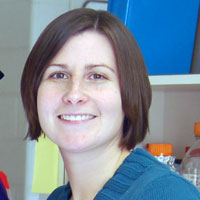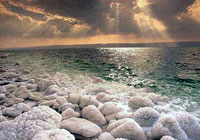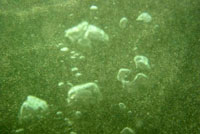
Meet Our Graduate Students
Courtney Busch As an undergraduate, Courtney Busch majored in both biology and anthropology at Washington College on Maryland’s eastern shore. But her father’s stories about his job at a biotechnology firm influenced her to pursue biology for graduate school. Wanting to stay relatively close to her home in Newark, Delaware, she applied to several PhD programs in the DELMARVA region. Exploring and Choosing a Research Focus at UM A Simplified Model System for Multi-Cellular Organisms How Archaea Repair Damaged DNA DNA repair is the process by which an organism’s body attempts to fix sustained damages. The pathway that Courtney is studying deals with random mutations. DNA is replicating constantly to form base protein bonds that line up correctly, but occasionally there is a mix-up and now one or more of those protein pairs no longer match. She explains that, this “mismatch” has to be fixed otherwise it will attenuate down the DNA chain and produce more mutations. In humans, these mutations can cause cancer. Since Archea have a simplified version of the Eukaryotic response system, Courtney can study the repair processes more easily. In the future, other researchers may be able to use her data to test whether or not these mechanisms are similar to those of larger organisms, e.g. mice. Courtney’s halophile is grown in an incubator at about 42 degrees Celsius in a media of sodium chloride, potassium and magnesium. After the growth of the halophile colony Courtney removes particular proteins from the organisms to see if the mutated pairs are corrected. After these initial observations Courtney is now focusing on investigating how these mutations are fixed, as well as comparing the frequency of mutation with the removal of different proteins. Courtney plans to finish her research in the summer of 2008. A Future in Biotech After finishing her PhD, Courtney would like to work in the biotechnology industry. “I worked for an Ag company and they made test kits for crop toxins in Delaware, during my summers between college…so I wouldn’t mind [working for] a company that has more of an agricultural base,” she says, but with her genetics background, she notes that immunology might be another option. “I’ll probably just apply and see what strikes my fancy.” Visit the Graduate Program in Molecular and Cell Biology website.
|
[an error occurred while processing this directive]
![]()
| Prospective Graduate Students |
College of Chemical & Life Sciences * University of Maryland * College Park, MD 20742
 Archaea are often adapted to extreme environmental conditions.
Archaea are often adapted to extreme environmental conditions.
